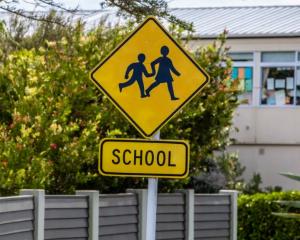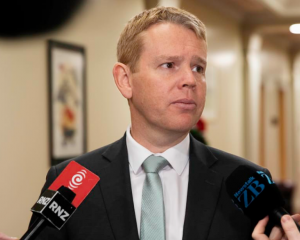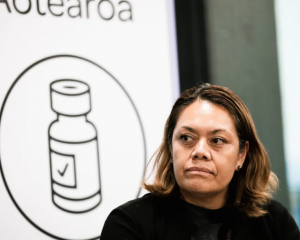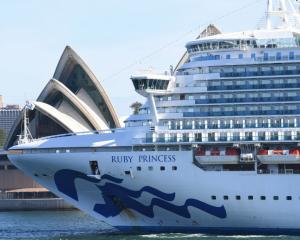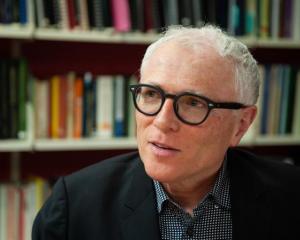
Johnson announced a new three-tiered system in an attempt to standardise a patchwork of often complicated and confusing restrictions imposed across England. Lawmakers will vote on the move on Tuesday.
The lockdowns will include shutting pubs and bars in areas placed in the "very high" alert level from Wednesday. The other alert levels in the new system are "medium" and "high".
So far, Merseyside in northwest England - which includes the city of Liverpool - is the only area classified at the "very high" level. Gyms, leisure centres, casinos, betting shops and adult gaming centres there will also close, Johnson said.
"We must act to save lives," Johnson told parliament, adding that he did not want another national lockdown and that he understood the frustrations of those chafing at the "repressions of liberty".
"If we let the virus rip, then the bleak mathematics dictate that we would suffer not only an intolerable death toll from Covid, but we would put such a huge strain on our NHS (National Health Service) with an uncontrolled second spike that our doctors and nurses would simply be unable to devote themselves to other treatments."
NEW MEASURES 'NOT ENOUGH' - HEALTH CHIEF
The tougher restrictions will not be enough to control the outbreak, the government's top medic says.
Speaking at a televised news conference alongside Johnson, Chief Medical Adviser Chris Whitty urged local authorities in these so-called "tier-3 areas", the worst-hit, to use their powers to introduce additional restrictions.
"I am not confident, and nor is anyone confident, that the tier 3 proposals ... if we did the absolute base case and nothing more, would be enough to get on top of it," Whitty said.
"And that is why there's a lot of flexibility in the tier 3 level for local authorities, guided by their directors of public health, to go up that range so they can do significantly more than the absolute base," he said.
So far, the city of Liverpool in northwest England and its surrounding area are the only part of England classified as "very high" risk or tier 3.
Other basic tier 3 restrictions include a ban on wedding receptions and the closure of indoor gyms, sports facilities, betting shops and casinos.
However, schools, cafes and restaurants remain open as do most workplaces, though where possible people are encouraged to work from home.
Health officials say the freshest data showed infections were rising across the north of England and in some more southerly areas too, while the virus was creeping up age bands towards the elderly from those aged 16-29 years.
Manchester intensive care consultant Jane Eddleston said 30% of critical care beds were taken up with Covid-19 patients and this was starting to affect healthcare for others.
"This is not how we want to live our lives but this is the narrow path we have to tread between the social and economic trauma of a full lockdown and massive human and indeed economic cost of an uncontained epidemic," Johnson said.
"The weeks and months ahead will continue to be difficult and will test the mettle of this country."
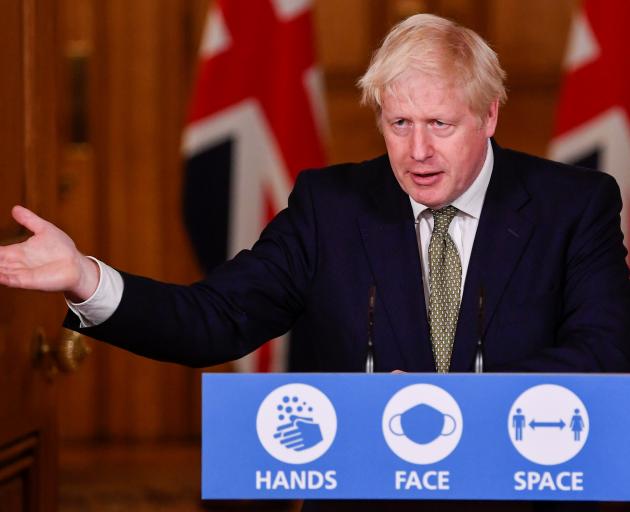
TIME CALLED ON SOME PUBS?
The last pints could be pulled in some pubs across northern England this week as furious bosses warn the new restrictions will wipe out their businesses, already reeling from a national lockdown earlier this year.
The infection rate in northwest England has been soaring in recent weeks, and in Liverpool stands at just under 600 cases per 100,000 people. Health chiefs say action is vital now to prevent hospitals being overrun and a rise in deaths.
The hospitality sector says it is being brought to its knees by the government.
Karen Strickland, landlady of The Grapes pub in Liverpool, said their income was already down by 70% with the current enforced countrywide closing time of 10pm, and the government's support scheme help was not enough.
"It's absolutely horrendous," she said, adding it made no sense to single out pubs.
Under the new restrictions, however, pubs that serve a main lunchtime or evening meal will be allowed to stay open, though they will only be able to serve alcohol as part of such a meal.
Some pub owners had been contemplating legal action over the move to close pubs, saying Johnson had not produced the evidence to explain why they were being targetted.
"The plan is on hold," Sacha Lord, a night club and events operator, told Reuters. "We are still going to get the troops ready because obviously things are changing on a daily basis... We are not out of the zone yet."
Liverpool, birthplace of the Beatles and home to the current Premier League soccer champions, will be the first city to be placed in the highest alert tier along with the surrounding area, meaning pubs face closure from Wednesday.
Pub managers there reacted with disbelief and anger that their city and businesses were being singled out.
"My biggest worry as a boss and a licensee is my business will have to close again and we may very well not come open next time because there's no funds in the pot from last time," said Frances Burleigh, landlady of The Beehive pub in Liverpool city centre.
"The last lockdown I lost £6500 ($NZ12,700) on beer alone and £3500 on food and I'll not survive that this time."
While local leaders say they support lockdown measures, they have demanded that the government pump more money into helping the hospitality industry and others affected by the forced closures, arguing that measures announced by finance minister Rishi Sunak last week did not go far enough.
Sunak said the government would pay up to two-thirds of employees' salaries, capped at £2100 a month each, if they worked for companies that are forced to close temporarily.


